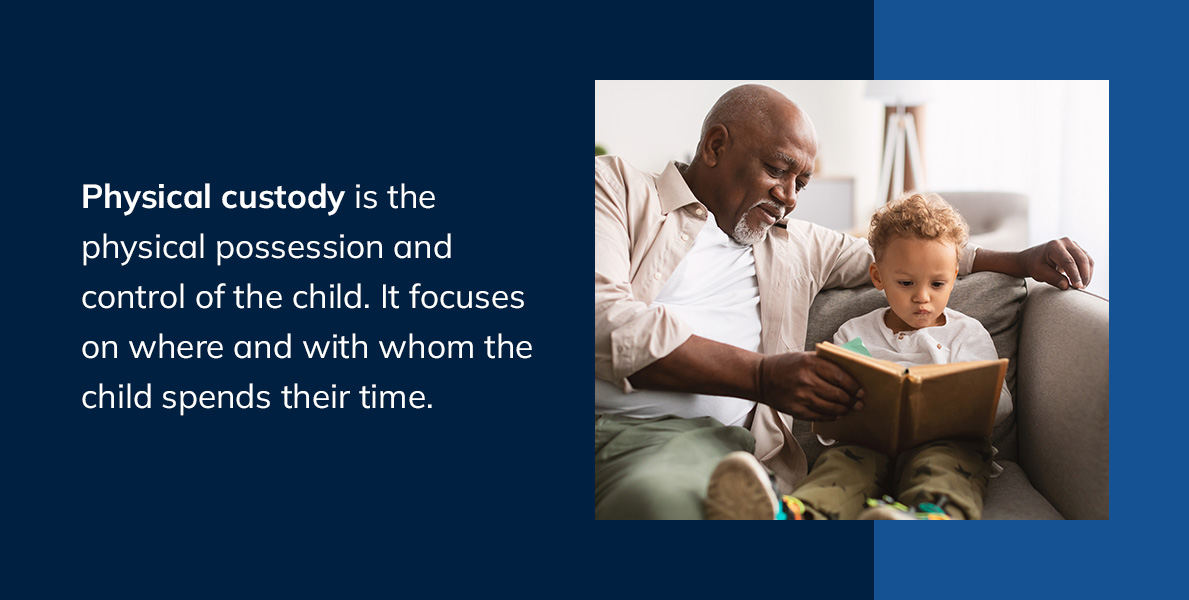
If you’re a grandparent in Pennsylvania looking into your custodial rights, we’re here to help. There are laws in Pennsylvania that generally allow grandparents custody of a grandchild. Below, read about your potential rights as a grandparent seeking custody and how you could be able to receive custody.
Overview of Custodial Rights in PA
Pennsylvania’s Act 112 of 2010 considers the “best interest of the child” the paramount consideration in making custody orders. It also provides three categories of persons who can file for any form of custody. These persons are:
- A parent.
- A grandparent or great-grandparent.
- A person standing in loco parentis to the child.
In 2018, PA Act 21 added a fourth person to the list — any individual who clearly and convincingly establishes that:
- They’ve assumed or are willing to assume responsibility for the child.
- They have a sincere and substantial interest in the child’s welfare based on factors like the nature, extent, quality and length of involvement in the child’s life.
- Neither parent has any form of control over or care for the child.
These changes to the PA custody law ensure the child’s welfare is safeguarded and they ultimately receive the best care possible.
Pennsylvania’s Grandparent Visitation Act allows grandparents to seek visitation, or “partial custody,” under specific circumstances. These generally include that the child’s nuclear family unit is broken, and the grandparent must present the court with a visitation schedule that is in the child’s best interests and doesn’t impact their relationship with their parents.
Types of Custody
The various types of custody can be categorized into two — legal and physical custody:
1. Legal Custody
Legal custody gives an individual the right to make critical decisions concerning the child, including education, medical and religious decisions. Legal custody comes in two forms:
- Sole legal custody: The court grants one individual an exclusive right to make decisions concerning the child.
- Shared legal custody: The custody order allows more than one person to make major decisions concerning the child.
2. Physical Custody

Physical custody is the physical possession and control of the child. It focuses on where and with whom the child spends their time. The court can award different types of physical custody, including the following:
- Primary physical custody: The child resides primarily with one individual most of the time. Typically, when one individual has primary physical custody, the other has partial or supervised physical custody.
- Partial physical custody: The child spends less than a majority of the time with an individual. In other words, the individual with partial custody has less time with the child than the person with primary custody.
- Sole physical custody: One individual has physical custody of the child at all times, meaning the other parent has no custody time.
- Shared physical custody: The child spends about an equal amount of time with each person. Typically, the court awards shared physical custody when both persons have the ability and rights to care for the child while residing with them.
- Supervised physical custody: This is granted when a third party is required to be present for all visits and monitors interactions between the child and the individual with that individual with the right to visit.
Factors for Determining Grandparents’ Visitation Rights
When determining grandparents’ visitation rights in PA, the courts consider the child’s best interest, which may be influenced by several factors, including but not limited to the following:
- The relationship between the child and the grandparent
- The grandparent’s background
- The child’s emotional, mental and physical well-being
- The impact of visitation on the child’s growth and development
- The child’s wishes, depending on the child’s age and level of maturity
- The child’s social and intellectual growth
- The child’s relationship with siblings
- The proximity of each party’s residences
- The extended family’s availability, if applicable
- The child’s unique needs, if any
Can Grandparents Get Primary Physical Custody?
Yes, a grandparent not standing in loco parentis of the child may seek primary physical custody if they meet the following conditions:
- The relationship between the grandparent and the child began either with the parent’s consent or under a court order;
- The grandparent takes or is willing to take responsibility for the child and
- One of the following conditions is met:
- The child is substantially at risk due to parental abuse, neglect, incapacity or drug or alcohol abuse.
- The child has been determined to be a dependent child.
- The child has lived with the grandparent for at least 12 consecutive months without counting brief temporary absences, and the parent removes the child from the home. In that case, the action must be filed within six months from the date of removal.
In many cases, the above requirements are challenging for a grandparent to meet. This, however, does not preclude a grandparent from having any custodial time. Grandparents who do not meet the requirements for standing for primary physical custody may meet the requirements for standing for partial physical custody.
Can Grandparents Get Visitation Rights?
Yes, grandparents may be able to obtain visitation rights, or partial physical custody, which is generally considered less than 50% of the custodial time in one of the following situations:
- The child’s parent is deceased.
- The parents have separated for at least six months or have commenced and continued divorce proceedings.
- The child has lived with the grandparent for at least 12 consecutive months without counting brief temporary absences, and the parent removes the child from the home. In that case, the action must be filed within six months from the date of removal.
For many grandparents seeking custody, custodial rights are commonly obtained under the second situation above.
Speak to an Attorney About Grandparents’ Rights in PA
We understand that grandparents’ rights in Pennsylvania regarding child custody can be complex, so we offer our services to those in need. Our experienced attorneys will listen to you and provide the best solutions possible.
Buzgon Davis Law Offices has a deep local history and connections to the community, representing families in PA for years. If you are placed in a situation as a grandparent where you are interested in seeking custodial rights, contact us now to schedule a consultation!


